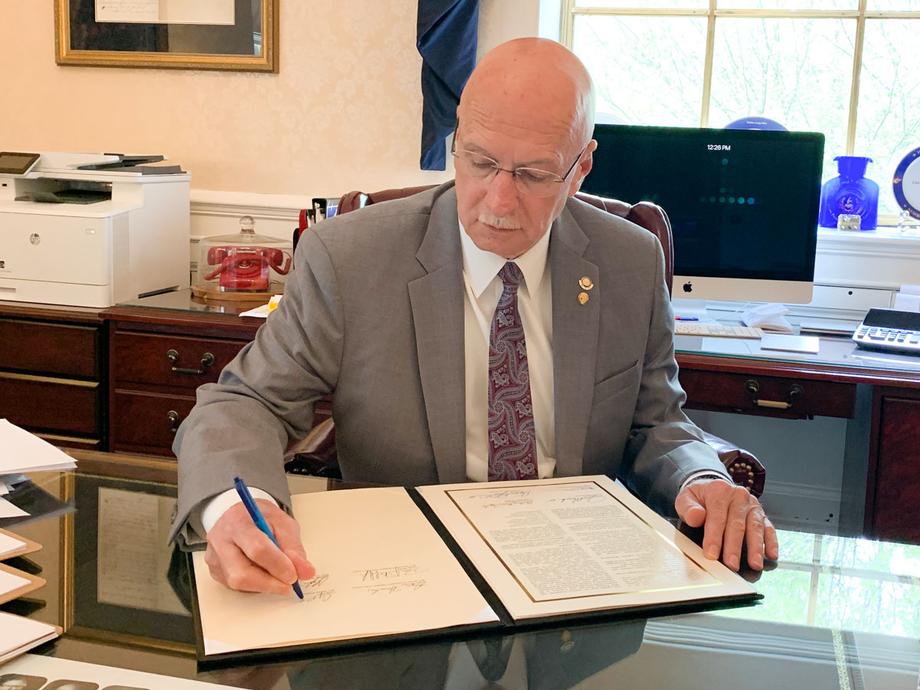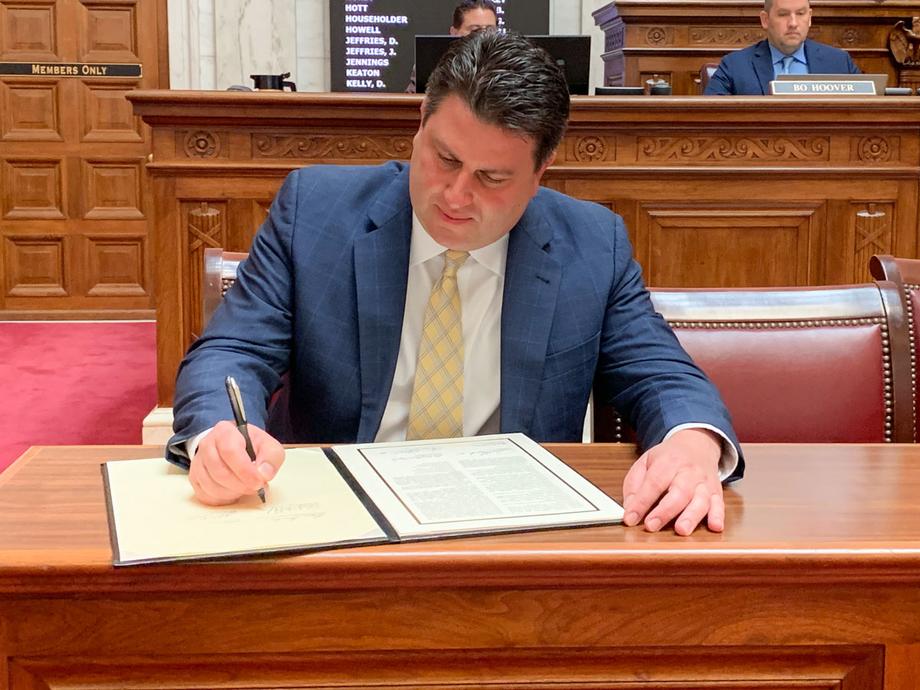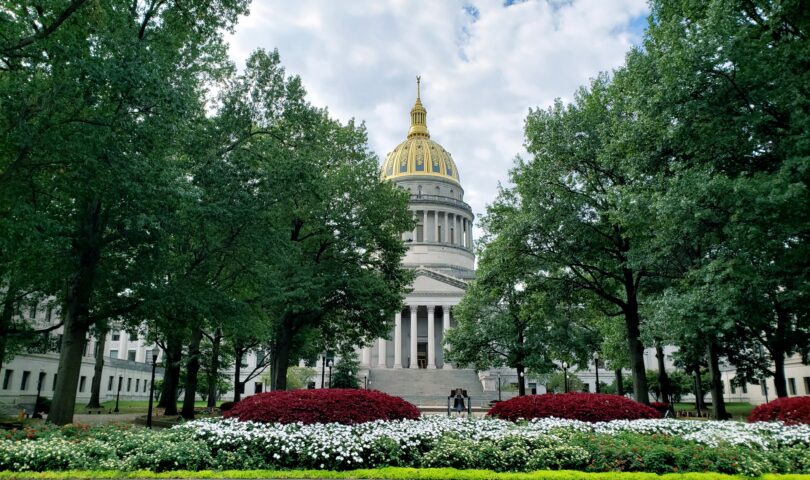MORGANTOWN — West Virginia’s four legislative leaders joined the West Virginia Hydrogen Hub Coalition on Thursday, adding their voices to those working to bring a hub to West Virginia.
The U.S. Department of Energy aims to establish four regional hydrogen hubs using Infrastructure Investment and Jobs Act money, and one of them will be in Appalachia, the nation’s largest natural gas-producing region. The West Virginia Hydrogen Hub Coalition submitted its official response to DOE’s first step in the process to select winning hydrogen hubs on March 21.

On Thursday, Sens. Joe Manchin and Shelley Moore Capito and Rep. David McKinley jointly announced that Senate President Craig Blair, Minority Leader Stephen Baldwin, House Speaker Roger Hanshaw and Minority Leader Doug Skaff joined the coalition.
Manchin, who chairs the Senate Energy and Natural Resources Committee, said, “We are thrilled to have the West Virginia legislative leadership join us in our efforts. With our abundant energy sources and strong partnerships, our state is uniquely situated to compete to develop a hydrogen hub. Our proposal showcases how West Virginia can continue to lead the country — and the world — in advancing energy technologies and bring good-paying jobs to the state.”

Capito said, “West Virginia’s leaders — Democrat and Republican — are united around the potential we know is ready to be unleashed right here in our state when it comes to investing in and developing a hydrogen hub.”
She told The Dominion Post on Thursday that DOE will likely have news on the selection process this summer. A presentation from Manchin’s office says hub selection is due in May 2023.
Capito told The Dominion Post, “The best way to handle what we see in terms of the climate and the climate changing is to innovate and research. … A hydrogen hub would be one of those innovative avenues to a cleaner, greener and more powerful future.”

McKinley said in the announcement, “The Infrastructure Bill has given us a once-in-a-lifetime opportunity to modernize infrastructure that will support a regional hydrogen hub. Which means West Virginia, one of the country’s largest coal, gas and oil producers, can lead an all-of-the-above energy strategy that leverages the state’s existing resources while developing next generation technologies that support good jobs and energy security for the U.S. into the future.”
The other two members of West Virginia’s Congressional delegation, Republicans Alex Mooney and Carol Miller, voted against the infrastructure bill and did not participate in the announcement.
The four legislative leaders also issued comments.
Hanshaw said, “We are creating a new economy here in West Virginia, and we stand ready to do what we can to be sure the state is attractive to this project, as well as many others.”

Skaff said, “West Virginia has a long history of powering this country and bringing a hydrogen hub to the Mountain State will allow our hard-working families to be a part of powering our great nation far into the future.”
Blair commented, “As we look to expand our strategy and portfolio into the next generation, I look forward to us being leaders in energy technology.”
And Baldwin said, “For the sake of our future, we need to be a more diverse and cleaner energy state. Expanding the hydrogen market here would allow us to create jobs, produce energy for our own citizens to use, and build a more-sustainable economy.”
Blue hydrogen is produced by steam methane reforming, which requires burning natural gas to reform methane into hydrogen and carbon dioxide, from which they capture and sequester the CO2. A possible alternate, cleaner way to produce blue hydrogen is microwaves; it can produce hydrogen faster with less energy.
Grey and brown hydrogen also use steam to produce the gas, but don’t sequester it. Green hydrogen produces the gas from water.
A hub, according to the presentation by Manchin’s office, is a network of clean hydrogen producers, potential consumer and connective infrastructure. At least one hub will produce hydrogen from fossil fuels, one from renewables and one from nuclear energy (pink hydrogen).
At least one hub will demonstrate clean hydrogen use for electric generation, one for industrial applications, one for residential and commercial heating and one for transportation.
The infrastructure act included $9.5 billion for hydrogen, including $8 billion for Regional Clean Hydrogen Hubs that will jump-start the production, transport, and use of clean hydrogen across the U.S. economy; $1 billion for a Clean Hydrogen Electrolysis Program to reduce costs of hydrogen produced from clean electricity; and $500 million for Clean Hydrogen Manufacturing and Recycling initiatives to support equipment manufacturing and strong domestic supply chains.
On Feb. 15, Manchin, Capito, McKinley and Gov. Jim Justice announced the launch of the West Virginia Hydrogen Hub Coalition. On Feb. 25, they convened the initial organizing meeting. GO-WV, the Gas and Oil Association of West Virginia, is also a member.
TWEET David Beard @dbeardtdp
EMAIL dbeard@dominionpost.com




